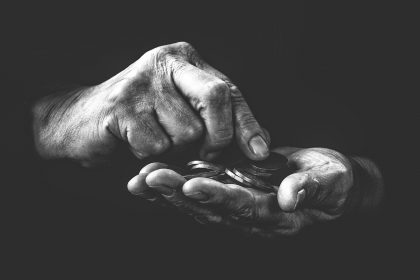The latest Oxfam’s report called “Time To Care” exposes shocking facts about the worldwide economy and global inequity.
Oxfam International in a recent report has highlighted how deeply inequality affects the global economy. The charity says that the disparity in wealth distribution, especially as it relates to gender, is a huge problem. Oxfam also adds that this situation is worsening and needs to be curbed.
Wealth Disparity
The report, called “Time To Care” exposes a few facts about the global economy. For example, 2019’s richest 2,153 people in the world were richer than the poorest 4.6 billion people combined.
The report also says that the world’s richest 1% have double the finances of 6.9 billion people. Oxfam published a similar report last year.
Gender Disparity
Oxfam suggests that the exclusion of women has bitten deep into the global economy, giving men an unfair advantage. This, unsurprisingly, is at the serious detriment of women all over the world. In a summary published on Oxfam’s website, this notion is further explained:
“This great divide is based on a flawed and sexist economic system that values the wealth of the privileged few, mostly men, more than the billions of hours of the most essential work – the unpaid and underpaid care work done primarily by women and girls around the world.”
To further buttress the gender inequality, Oxfam introduces another revelation. According to the report, Africa just might be worse here, than in other places. Oxfam says that the wealth of the 22 richest men in the world, equals the combined wealth of all of Africa’s women.
Oxfam also said that women all over the world are contributing 12.5 billion hours of unpaid work daily. This work generally surrounds care, including taking care of children, the elderly, cooking, cleaning, fetching water, and many other essential daily tasks. Firstly, the report suggests that “heavy and unequal responsibility of care work” is the major reason for the economic equality and gender disparity. Also, Oxfam says that calculating the monetary value of this work would contribute an annual $10.8 trillion to the world’s economy. This is at least 300% more than the tech industry donates to the global economy.
Way Forward with Global Inequality
Oxfam published the report just as the UK Prime Minister Boris Johnson receives 21 African countries in London for the Africa Investment Summit. Time To Care was also released just a few days before the World Economic Forum. The Forum is to begin on Wednesday and will host some of the world’s 1% in Switzerland’s Davos town.
These gatherings are powerful enough places to begin to tackle this heavy discrimination as highlighted by the organization. Oxfam GB CEO Danny Sriskandarajah believes that these meetings can go a long way in alleviating women’s issues.
“If world leaders meeting this week are serious about reducing poverty and inequality, they urgently need to invest in care and other public services that make life easier for those with care responsibilities, and tackle discrimination holding back women and girls,” told Sriskandarajah.
next